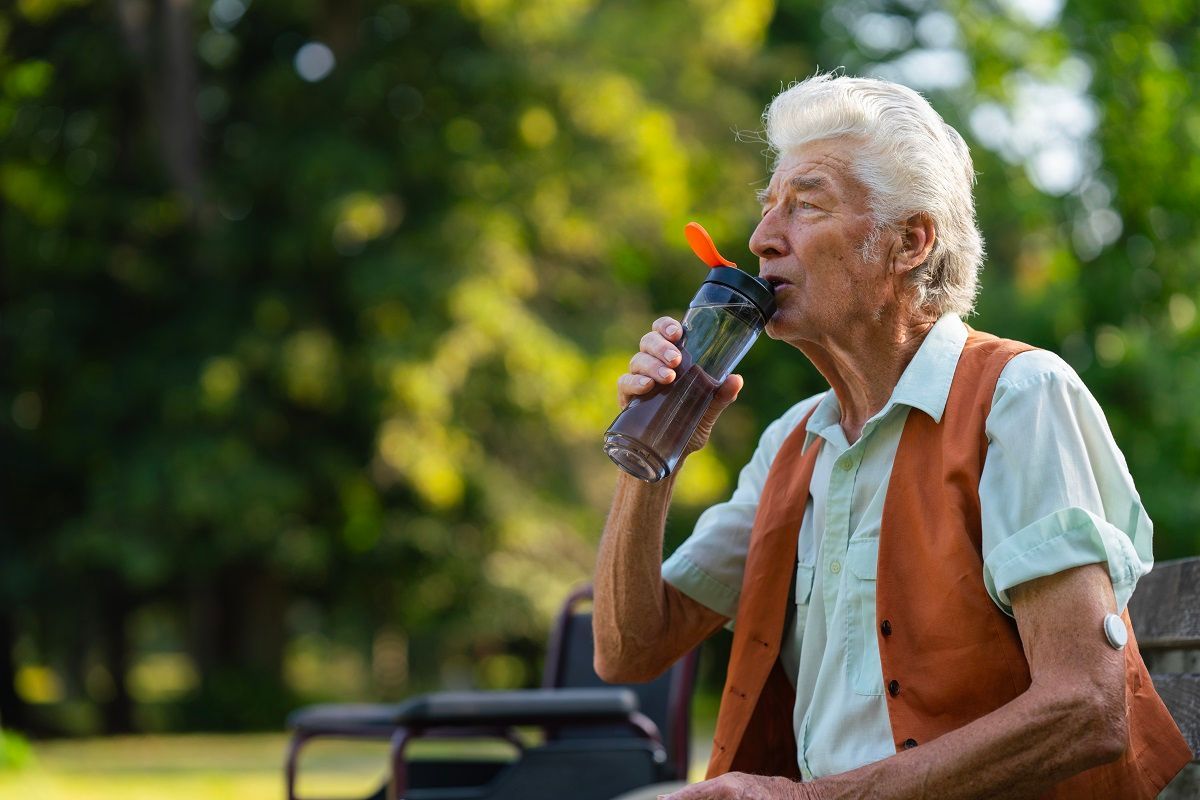Our Location
Elige tu idioma:
Aging with a Sharp Mind: Strategies to Reduce the Risk of Dementia

As you age, it’s only natural to be concerned about health issues, especially those related to the brain. The fear of cognitive decline and dementia may stress you out as you enter your senior years. The good news is that there are proactive measures you can take to maintain a sharp mind, reduce the risk of dementia, and maintain good senior brain health. So, if you’re looking for ways to keep your brain healthy and learn good habits for brain aging prevention, you’ve come to the right place.
Understanding Brain Aging and Dementia
Before we dive into the preventive strategies, let’s clarify the relationship between brain aging and dementia. Dementia is not something that typically happens as we age. While the risk of developing dementia does increase with age, it’s not a guaranteed outcome for all elderly individuals. The term “dementia” encompasses various cognitive disorders affecting memory, thinking, and behavior. Alzheimer’s disease is the most common form of dementia, but there are other types to be aware of.
In the vibrant state of Florida, a staggering
580,000 individuals aged 65 and above live their days with Alzheimer’s, a condition that touches not only individuals, but entire communities. And that scope appears to be even broader than we thought, as 13.6% of those aged 45 and older report experiencing subjective cognitive decline. These statistics paint a vivid picture of the realities faced by Florida residents, underscoring the critical need for information, support, and strategies to foster cognitive health and reduce the risk of dementia.
Maintaining Cognitive Agility: Tips and Preventive Measures
The journey of aging is challenging on its own, and preserving your cognitive abilities may add extra weight, but it is always a goal worth pursuing. Fortunately, there are concrete steps to take to safeguard the health of your elderly brain and decrease the likelihood of dementia. Here are some of the answers to queries such as “how to prevent dementia in old age”, “how to keep your brain sharp” and “how to keep your brain healthy as you age.”:
1. Mental Stimulation
Engaging in mentally stimulating activities is fundamental to keeping your brain sharp. Regularly challenging your mind by learning new skills, playing puzzles, solving riddles, or even picking up a musical instrument helps in maintaining cognitive function.
2. Physical Exercise
The connection between physical health and brain health is undeniable. Regular exercise increases blood flow to the brain, stimulates the growth of new neurons, and enhances overall cognitive function. Aim for a combination of aerobic exercises and strength training to maximize the benefits to your brain.
3. Healthy Diet
What you eat directly impacts brain health. A diet rich in antioxidants, omega-3 fatty acids, and vitamins like B and D supports brain function. Include fatty fish, leafy greens, berries, nuts, and whole grains in your daily meals.
4. Adequate Sleep
Sleep is essential for brain rejuvenation. Throughout the deep sleep stage, the brain effectively eliminates toxins and strengthens the process of memory consolidation. Aim for 7 to 9 hours of restful sleep each night to ensure your brain gets enough time to revitalize.
5. Social Engagement
Maintaining an active social life has cognitive advantages. Regular interactions with friends and family stimulate conversation, problem-solving, and emotional connections, all contributing to an increase in brain health.
6. Stress Management
Prolonged stress negatively impacts brain function. Utilize relaxation methods like deep breathing, meditation, or yoga to effectively manage and reduce stress levels.
7. Brain-Boosting Supplements
Certain dietary supplements, such as omega-3 fatty acids, ginkgo biloba, and vitamin D, have undergone research to explore their potential in promoting cognitive well-being. Consult your doctor before adding any supplements to your regimen.
8. Manage Cardiovascular Health
Cardiovascular health and brain health are closely linked. Medical conditions like high blood pressure, diabetes, and elevated cholesterol levels increase the chances of facing cognitive decline. By managing these conditions through lifestyle changes and (if necessary) medication, you can lower your risk of dementia.
9. Limit Alcohol Consumption
Excessive alcohol intake has detrimental effects on the brain. If you choose to drink, do so in moderation – that’s up to one drink per day for women and two for men.
10. Quit Smoking
Research has linked smoking to cognitive decline and an increased risk of dementia. Giving up smoking yields beneficial outcomes for your brain and general well-being.
11. Stay Mentally Active
Continuously challenge your brain by learning new skills and pursuing hobbies that require mental effort.
12. Stay Physically Active
Consistent physical activity enhances cardiovascular health and aids brain functionality by boosting blood circulation and stimulating the generation of fresh neurons.
13. Stay Socially Engaged
Maintain strong social connections to keep your brain engaged and active. Join clubs, volunteer, engage in stimulating conversations, and spend time with friends and family.
Learn more tips and activities to prevent dementia in older adults from our blog “Best Activities That Help Prevent Alzheimer’s and Dementia.”
Frequently Asked Questions About Senior Brain Health
Is there an age limit for dementia?
Dementia is not strictly limited by age. While it’s more common in older adults, there isn’t a specific age limit for its occurrence. Genetics, life factors, and underlying health conditions play a significant role in dementia risk. Adopting a brain-healthy lifestyle could lower your risk regardless of age.
Is Mental Decline Inevitable with Aging?
While some cognitive changes are a natural part of aging, severe mental decline is not inevitable. Adopting a healthy lifestyle that includes regular exercise, a balanced diet, mental stimulation, and stress management could significantly slow down cognitive decline and promote brain health.
Embrace the Future: Nurturing a Sharp Mind for a Dementia-Resilient Life
Achieving the goal of aging with a sharp mind requires taking proactive measures and committing to a brain-healthy lifestyle. While some cognitive decline is inevitable as we age, it’s possible to significantly reduce the risk of dementia by staying physically active, adopting a healthy diet, engaging in mental and social activities, and managing cardiovascular health. Remember, there is no age limit for dementia, and the choices you make today will profoundly impact your brain health as you age. Embrace these strategies and pave the way for a fulfilling and cognitively vibrant life in your golden years. You may also read our dedicated blogs “Tips for Families Caring for Seniors with Dementia” and “Living With Alzheimer’s Guide for Family Members and Loved Ones” for additional expert guidance.
Discover a wealth of resources at Ocana Medical Center to support your quest for aging with a sharp mind. If you found our tips on how to prevent dementia in old age helpful, uncover more actionable insights and strategies to reduce the risk of dementia while advocating for your loved ones. Dive into our comprehensive services at
https://www.ocanamedicalcenter.com/ and take the first step towards a healthier, more fulfilling life. Ready to take charge? Schedule an appointment today by calling (813) 968-8314 or clicking the “Book an Appointment” button. Let us empower you to champion the well-being of older adults.
Ocana Medical, located in Tampa, FL, aims to bring you as much information as possible to keep you healthy. We're in this together. #ocanacares
“Respect. Compassion. Quality. Integrity. These are the values on which Ocana Medical Center was built. Our aim isn’t just to treat you today. We hope to earn your trust and be your healthcare provider for life.”
©2023 Ocana Medical Group, Inc.
USEFUL LINKS
GET IN TOUCH
Call Us Today
Send us Email
Our Location
Ocana Medical Center | All Rights Reserved.












